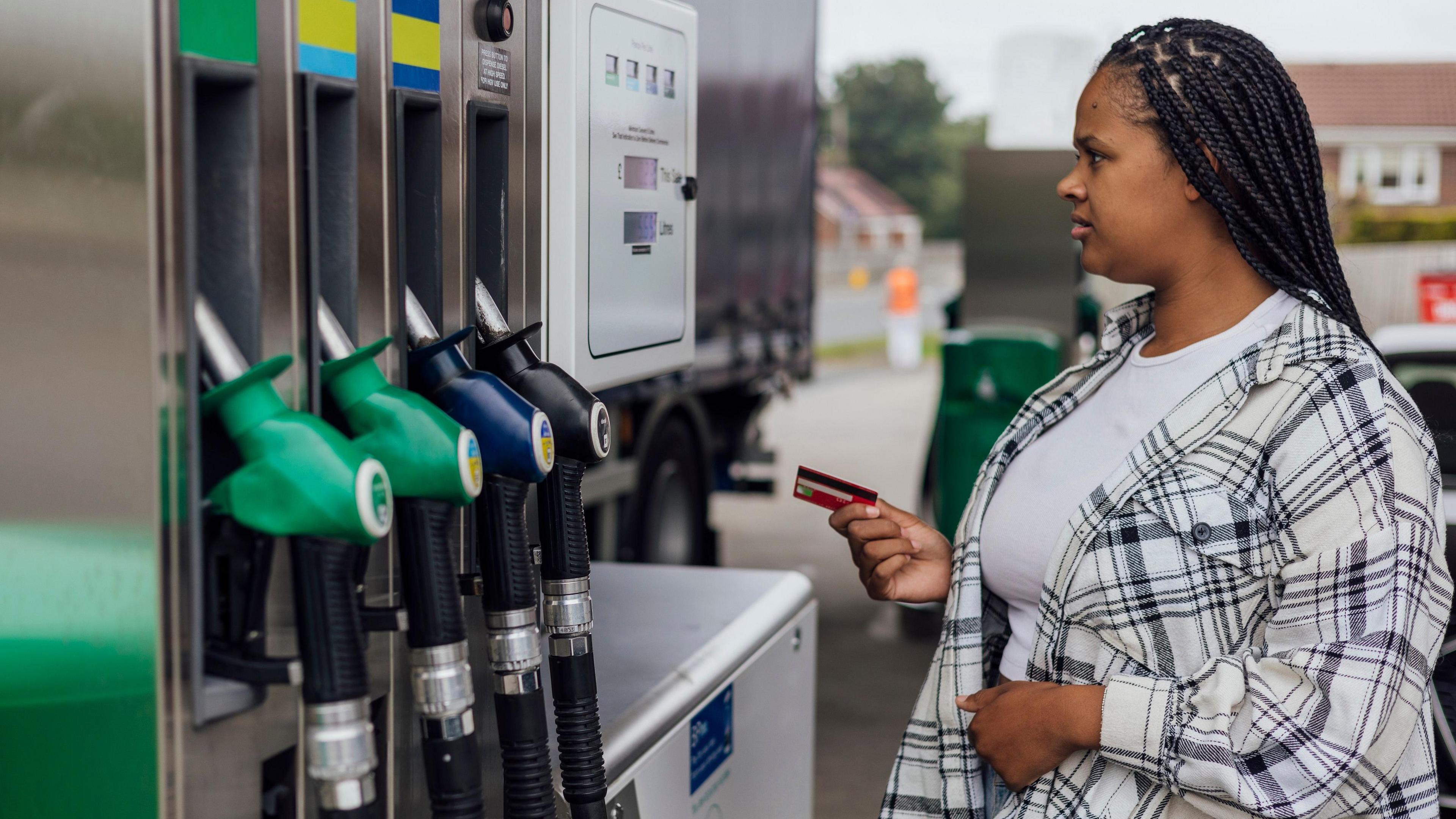Drivers paying more than they should for fuel, says watchdog

- Published
Drivers are paying more for fuel than they should because retailers' profit margins remain "stubbornly high", the competition watchdog has said.
The Competition and Markets Authority (CMA) said sellers' margins - the difference between what a retailer pays for its fuel and what it sells at - remained higher than historic levels, although fuel prices have fallen since July.
It said supermarkets' margins had risen to 8.1% in August from 7% in April.
The Petrol Retailers Association (PRA) said sellers were pricing fuel as “low as possible in a highly competitive market” while also grappling with increasing costs.
But the CMA said the "sustained" increase in fuel prices was concerning and there was not enough competition in the fuel market, which continued to drive prices up.
Non-supermarket fuel margins had risen to 10.2% in August from 7.8% in April, the watchdog said.
“While fuel prices have fallen since July, drivers are paying more for fuel than they should be as they continue to be squeezed by stubbornly high fuel margins," said Dan Turnbull, senior director of markets at the CMA.
"We therefore remain concerned about weak competition in the sector and the impact on pump prices," he added, especially while costs of living remain high.
"The more people save on fuel, the more they have to spend in other areas", he said.
The average petrol price at the end of October was 134.4p per litre, and for diesel it was 139.7p.
However, the PRA's executive director, Gordon Balmer, said it was crucial that the increasing costs facing retailers - notably business rates, National Insurance and the minimum wage - were included in future analysis to "give a complete picture".
"The CMA reporting that retailers continue to pump their fuel margins for extra profit will stir anger once again – particularly when set against the background of the government continuing the fuel duty freeze,” says Luke Bosdet, the AA’s spokesman on road fuel prices.
He added that as retailers now have to pay increased National Insurance contributions, higher wages and increased energy bills, it was hard to see what a "reasonable addition" was to fuel prices, and what counted as "bloated margins".
Motoring group RAC said the CMA's findings were "disappointing", especially after the regulator said in July that drivers had been overcharged on fuel by £1.6bn in 2023.
“We hope the introduction of the government-backed fuel finder scheme next year will succeed in driving greater competition and enable drivers all around the UK to benefit from fairer prices", said the RAC's Simon Williams.
The fuel finder scheme will allow drivers to compare real-time fuel prices and is due to be introduced by the end of 2025.
The government in January said the information, which will be available on online comparison sites and navigation apps, should drive down prices because of the added transparency.
- Published26 July 2024
